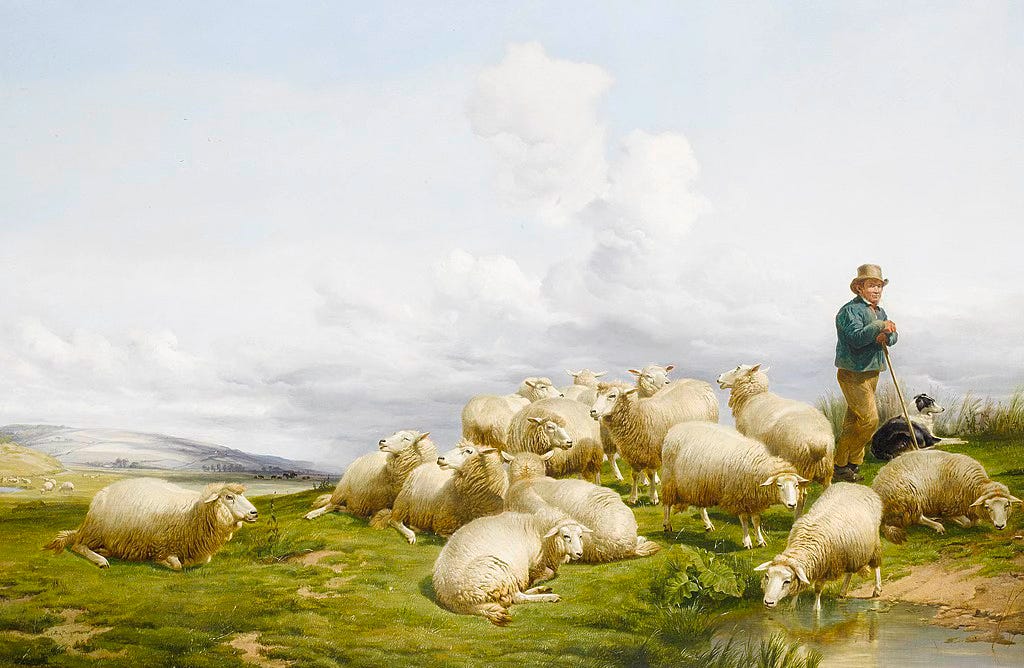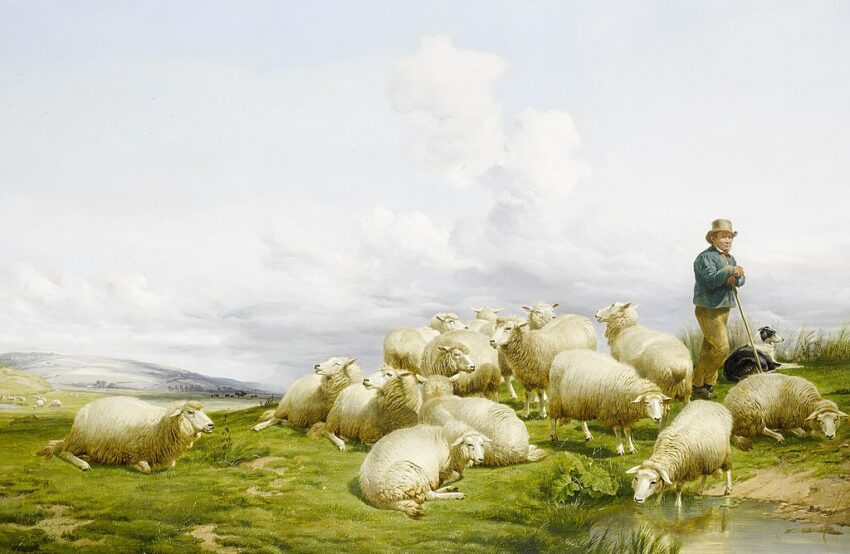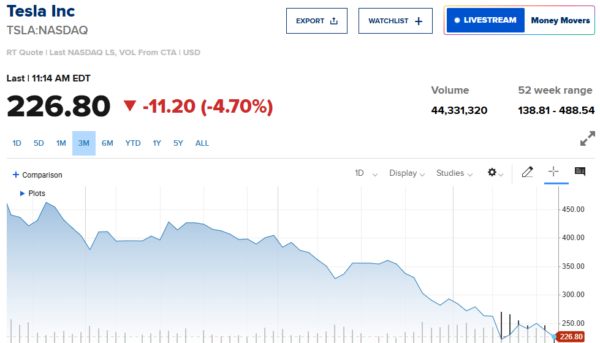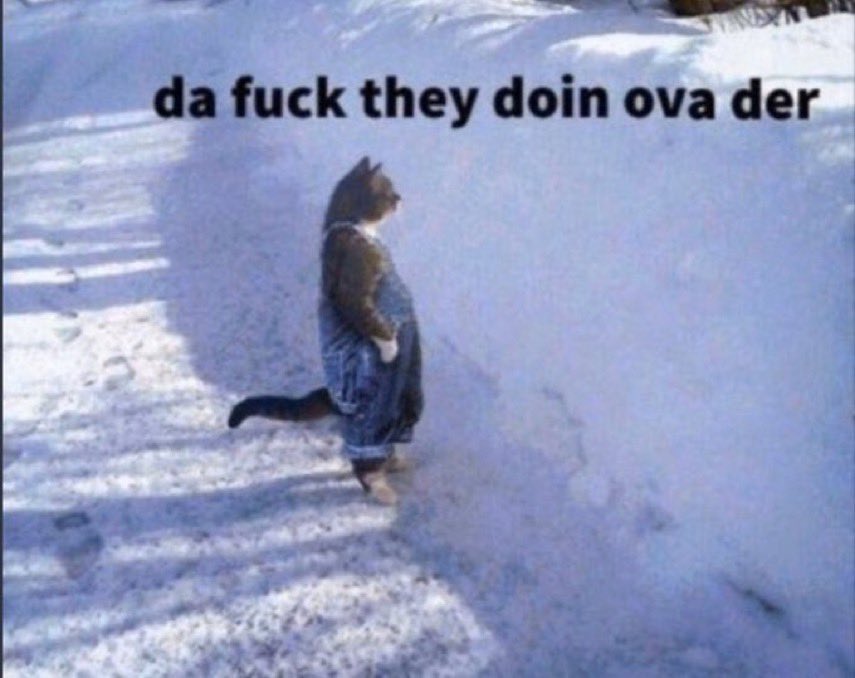…or How moving fast and breaking things…breaks more than just things
(Crossposted with Inverse Square)
So…it turns out that among his many other sins, Elon Musk, with a boost from the now-unmentionable fact of climate changes, is turning low earth orbit into an overgrazed commons…to the impoverishment of us all. That’s the message of this study, published last week in Nature Sustainability. That work explores the effects of injecting anthropogenic (AKA us) greenhouse gases on the thermosphere—the bit of the upper atmosphere that extends all the way into Low Earth Orbit (LEO, up to 2000 kilometers above the planet).
The TL:DR is that climate change heats the earth’s surface, but cools and shrinks the higher-up regions of the atmosphere. That in turn means satellites in low earth orbit experience less atmospheric drag. Which leads to the following problem: without such drag bits of space junk don’t get slowed down…which means their orbits don’t decay (as fast) and they don’t burn up. As the corresponding author of this work, MIT graduate student William Parker put it in an interview with the MIT news office, “The sky is quite literally falling — just at a rate that’s on the scale of decades…And we can see this by how the drag on our satellites is changing.”
More dead satellites and orbital debris boosts the risk of collisions that knock out still-useful spacecraft. Such wrecks generate more debris, which makes crashes yet more likely, until it becomes too dangerous to try to park a satellite in some patches of space. And when that happens, a global commons will have been tragically exhausted.
Bit of backstory here: the idea of a common is an old one. In practice, it probably dates back to the beginnings of anything resembling hominid society, and as an explicit term in property law (in England, at least) it extends back to the feudal manorial system.
The basic concept is simple, and kind of evident in the name. A common is (in its first incarnation) some bit of land on which the people who live on or around could do something—the ability to use the property for one or more purposes, usually up to some defined limit. For example, someone could hold the right to graze five sheep, or gather some amount of wood, or some similar privilege.
Note the idea of limits—constraints on an individual’s use of a common resource. Our commoner (!) could put five sheep out to nibble…not six or seven or any number they chose. And if it turned out that the already granted rights of pasturage were too much in a bad year, existing rights could be reduced. All of which is to say that on a lasting, well run common property, its use was tightly regulated. If that weren’t so…well that’s where the tragedy comes in. If any member of commons can run as many ewes as they want on a field of grass then the endgame comes fast: the meadow gets munched down to the roots and its carrying capacity drops. Fewer animals can graze and everyone grows poorer.
Historically, lots of commons have avoided this outcome. They have been actively managed and the commoners involved in any given set of rights have policed potentially cheats with great assiduity.
But, beginning perhaps in the 19th century, certainly by the 20th, new kinds of commons have emerged that have proved much more difficult to police. Think the oceans and overfishing, or of the use of air, land, and water as depositories for pollution, or (my current focus) a way of thinking that sees the effectiveness of antibiotics as a kind of commons that can be destroyed by uses that promote antibiotic resistance. And, of course, there is the most common commons of them all: the earth’s atmosphere, in which the tragedy of billions of individual decisions (and national and multi-national corporate choices) is producing profound physical and chemical changes on a planetary scale.
Back to the cooling thermosphere and the rise of space junk. In the study authors’ analysis, less drag leading to longer decay times for debris will reduce the carrying capacity of some or all of the LEO region. As they write, “the worst-case scenario capacity carries many fewer satellites across broad swaths of LEO by the year 2100.”
2100 is a bit of ways out. But the problem is already here. Why? Because of Musk and a handful of other overgrazers of this space-commons. Here’s what’s happening, again, as told to the MIT news office:
Their predictions forecast out to the year 2100, but the team says that certain shells in the atmosphere today are already crowding up with satellites, particularly from recent “megaconstellations” such as SpaceX’s Starlink, which comprises fleets of thousands of small internet satellites.
“The megaconstellation is a new trend, and we’re showing that because of climate change, we’re going to have a reduced capacity in orbit,” [MIT associate professor Richard] Linares says. “And in local regions, we’re close to approaching this capacity value today.”
In other words: as Musk and his minions are attacking the US federal gov’t efforts to combat climate change, he’s running his space-grab as fast as he can, to the point where we may lose access to the territory currently used by everything from earth sensing satellites, the Hubble Space Telescope, both the International Space Station and China’s Tiangong sation, not to mention a wealth of communications satellite (including Starlink, of course).
The response is obvious, previewed in the history of the commons. Resources that belong to/are valuable to society (or societies) as a whole need to be closely regulated. We have to make sure that the asshole in the third cottage down doesn’t ruin it for everyone by grabbing the temporary advantage of running some extra livestock on the pasture. In other words: we have to tell Musk and his ilk that a common resource like low earth orbit—is not one in which they can do whatever they want.
Of course, the idea of regulating global commons is exactly the antithesis to the Silicon Valley “move fast and break things” credo, the one Musk embodies, of course. But as that techno-capitalist view takes hold it’s important to recognize how unsustainably extractive it is in many domains—and how much can be broken.
I have little hope of anything moving to protect LEO as a resource under the current regime, nor any of the other crucial modern commons. But here’s the thing: nature, the material world we inhabit, gets its vote too. It doesn’t care if MAGAts think climate change is a hoax (or rather, that elite MAGAts are happy to suggest it’s a hoax to squeeze the next dollar out of a declining resource). Elementary physics tells us that if we go on as we are now, the troposphere will shrink and satellites will crash. That’s reality. I hope that we can minimize the cost of our education at the hands of this most explicit of teachers. But pay we will.
And in the meantime…open thread.
Image: Thomas Sidney Cooper, Shepherd with Sheep, 1868





